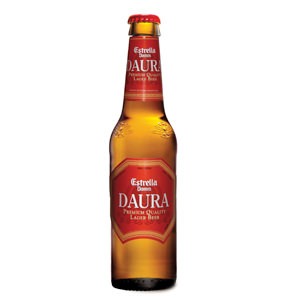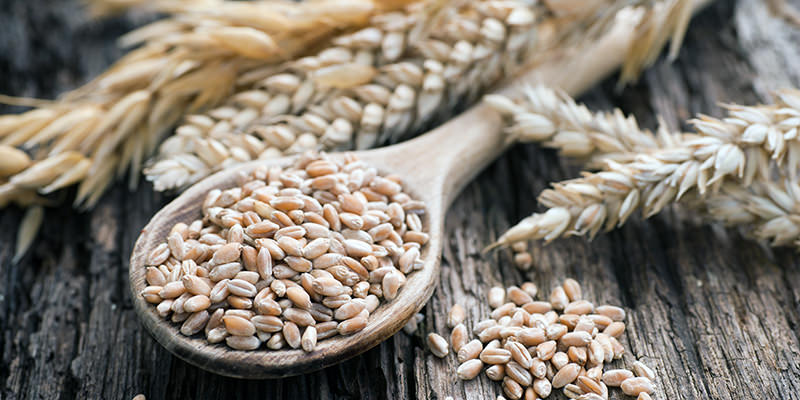It’s hard to imagine that ten years ago, the phrase “gluten-free” was hardly ever used in mainstream circles. However, with gluten sensitivity/allergy awareness on the rise, many a product at the grocery store will proudly proclaim its gluten-free status. Alcohol is no stranger to wanting in on the elite gluten-free club. While many spirits that are corn-based go the extra mile and say that they’re “naturally” gluten-free, we know that (save for whacky cross contamination and certain liqueurs) hard liquor is really always sans gluten due to the process of distillation. Beer, however, is a different story.
If you asked for gluten-free beer back in the 80’s and 90’s – hey, even in the early 21st century – you’d be out of luck. Then again, if you requested a fruity craft IPA you’d be lacking as well. But the face of beer has changed, and with that change comes the availability of gluten-free brews. But how can gluten-free beer exist, when beer is essentially gluten-juice? After all, gluten is found in lots of cereal grains commonly used in beer, including wheat, barley, and rye. The answer is twofold: one has to do with eliminating gluten as an ingredient, the other has to do with… testing the limits of what gluten-free really means.
One option brewers have is to use gluten-free bases for their beer. These include sorghum, buckwheat, and rice. Simply put, with these beers, what goes into the mash does not contain gluten. Examples of widely available gluten-free beers that employ this kind of creativity are Dogfish Head’s Tweason’ale and Ipswitch Ale Brewery’s Celia Saison. Ciders also fall into gluten-free territory, because they’re generally made of apples (or other fruit). So, to be clear, gluten was never in these beers’ recipes, and that is why this beer is gluten-free.
 Now, there’s another way for a beer to be “gluten-free” that actually translates into the beer possessing gluten. Some beers contain a level of gluten that’s under what constitutes a beer being “gluten-free.” This gluten-free standard varies from country to country, but many are in agreement that 20 ppm (parts per million) of gluten is what’s actually dangerous to a person with celiac disease (though we acknowledge there are other gluten allergies/intolerances out there). For instance, the Spanish beer Estrella Damm Daura claims to have less than 3 ppm (parts per million) of gluten in their beer. That’s because while Estrealla Damm Daura is actually made with the gluten-filled grain barley, apparently they remove the gluten through a proprietary process. They’re not terribly up front about how they do that, and the Gluttenati have been skeptical or downright opposed to the beer because of this, but still, legally, the beer is gluten-free.
Now, there’s another way for a beer to be “gluten-free” that actually translates into the beer possessing gluten. Some beers contain a level of gluten that’s under what constitutes a beer being “gluten-free.” This gluten-free standard varies from country to country, but many are in agreement that 20 ppm (parts per million) of gluten is what’s actually dangerous to a person with celiac disease (though we acknowledge there are other gluten allergies/intolerances out there). For instance, the Spanish beer Estrella Damm Daura claims to have less than 3 ppm (parts per million) of gluten in their beer. That’s because while Estrealla Damm Daura is actually made with the gluten-filled grain barley, apparently they remove the gluten through a proprietary process. They’re not terribly up front about how they do that, and the Gluttenati have been skeptical or downright opposed to the beer because of this, but still, legally, the beer is gluten-free.
 Stone Brewing Company goes into more detail about how they make their “gluten-reduced” beer, Stone Delicious IPA. In the U.S., the TTB has mandated that any beer made with any gluten cannot be gluten-free, hence why Stone Delicious IPA is labeled as “gluten-reduced.” Stone uses an enzyme called Clarity-Ferm to separate and get rid of “the potentially inflammatory nature of the gluten protein chains.” Stone states that the level of gluten in Stone Delicious IPA is so low it can’t even be measured by the current gluten-tests, and that their brewing process “renders the beer free of barley epitopes – petite sequences and reactive sites in gluten molecules triggering negative reactions in the small intestine.”
Stone Brewing Company goes into more detail about how they make their “gluten-reduced” beer, Stone Delicious IPA. In the U.S., the TTB has mandated that any beer made with any gluten cannot be gluten-free, hence why Stone Delicious IPA is labeled as “gluten-reduced.” Stone uses an enzyme called Clarity-Ferm to separate and get rid of “the potentially inflammatory nature of the gluten protein chains.” Stone states that the level of gluten in Stone Delicious IPA is so low it can’t even be measured by the current gluten-tests, and that their brewing process “renders the beer free of barley epitopes – petite sequences and reactive sites in gluten molecules triggering negative reactions in the small intestine.”
Did you get all that?
Despite the scientific tinkering that reduces gluten in these beers, neither Estrella Damm Daura or Stone Delicious IPA are 100% gluten-free. It seems that a way to definitively measure the safety of gluten is still being developed. However, people with less sensitive gluten allergies may find themselves a-OK to drink beers like Stone Delicious and Daura, which have only trace amounts of gluten. But those with more severe allergies might want to stick to beers that are legitimately gluten-free – that is, beers that don’t have gluten in the primary ingredients to begin with. So, when you’re looking for gluten-free beers, remember that there are two types: beers without gluten and beers with lowered gluten whose ingredients have been manipulated to lower the gluten content.

